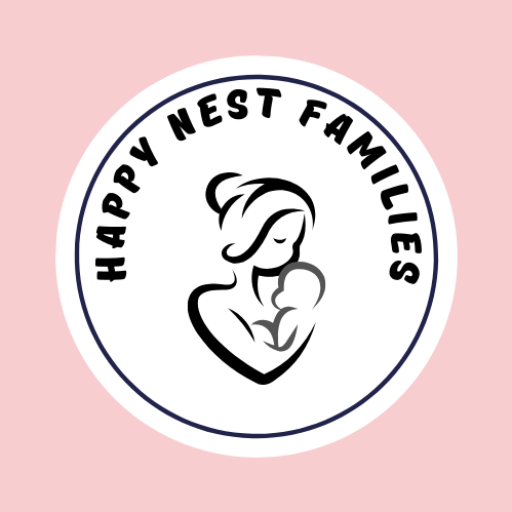Stress management for new parents involves practical strategies and self-care. It’s crucial to balance responsibilities and personal well-being.
Becoming a new parent is a journey filled with joy, challenges, and unexpected stressors. Navigating the early stages of parenthood often requires adjusting to new routines, coping with sleep deprivation, and managing the overwhelming responsibility of caring for a newborn.
Stress management is not just beneficial but essential for new parents, as it directly impacts their health and their ability to provide the best care for their child. Effective stress management techniques include seeking support from loved ones, prioritizing self-care, and setting realistic expectations for oneself. Embracing these strategies can significantly enhance the parenting experience, making it more enjoyable and fulfilling for both the parents and their baby. By acknowledging the importance of their well-being, new parents can cultivate a positive environment that fosters growth and happiness for the entire family.

Understanding Stress And Its Impact
Being a new parent is like riding a rollercoaster. It’s exciting but also scary. You want to do everything right. But sometimes, you feel stressed. It’s important to know about stress and how it affects you and your baby. Let’s talk about stress and how to handle it.
Types Of Stress
Stress comes in many forms. For parents, it’s often about new responsibilities. Here are some types of stress new parents might face:
- Emotional stress: Feeling worried or sad.
- Physical stress: Being tired or sick.
- Social stress: Feeling alone or having trouble with friends.
Understanding these types can help parents find ways to feel better. It’s like knowing what tool to use for a job.
Effects Of Stress On Parents And Children
Stress can affect both parents and kids. Parents might feel tired or upset. Kids might feel this too. They can become fussy or have trouble sleeping. It’s like when one person catches a cold, and soon, everyone at home has it. Stress spreads in a similar way.
Here’s how stress affects families:
| For Parents | For Children |
|---|---|
| Feel tired all the time | May cry more than usual |
| Get upset easily | Have trouble sleeping |
By knowing these effects, parents can take steps to make things better for the whole family.
How To Understand And Manage Stress?
To manage stress, first, understand what causes it. Think about what makes you feel stressed. Is it lack of sleep? Or maybe it’s trying to do too much. Once you know the cause, you can find ways to deal with it.
Here are some tips for parents:
- Take breaks: Even a short walk can help.
- Talk to someone: Sharing your feelings can make you feel better.
- Get enough sleep: Try to rest when your baby sleeps.
These simple steps can make a big difference. They are like keys that unlock a door to a calmer life.
Remember, learning how to reduce stress for new parents is a journey. Stress management for new parents are tool to help along the way. And coping with stress as a new parent is possible with support and patience.

Identifying Sources Of Stress
Stress Management for New Parents begins with pinpointing where the pressure comes from. Identifying Sources of Stress is like finding pieces of a puzzle. Once you know what you’re dealing with, the big picture gets clearer. New parents often face an array of unknowns. Recognizing these stress triggers can pave the way for effective coping strategies. Let’s dive into the quest of spotting these hidden stressors.
How To Identify Stressors?
Spotting stress triggers is vital for how to reduce stress for new parents. Here’s a quick guide to help you find these sneaky stressors:
- Track Your Feelings: Keep a journal for a week. Note down times when you feel overwhelmed or anxious.
- Physical Clues: Be aware of signs like headaches, fatigue, or muscle tension. Your body often signals stress before your mind catches up.
- Change in Routine: A new baby shakes up your old schedule. Look for stress signs when your daily habits are disrupted.
Stress management for new parents starts with awareness. Recognizing these signs early on can lead to quicker and more effective solutions.
Common Stressors For New Parents
Every new parent faces typical challenges. Here’s a list of Common Stressors for New Parents:
- Sleep Deprivation: Constant care during odd hours can lead to exhaustion.
- Financial Pressure: The cost of raising a child can be daunting.
- Lack of Personal Time: Your new role might consume all your personal space and time.
Understanding these common triggers helps in coping with stress as a new parent. Once identified, you can start to address and manage these issues effectively.
Personal Stressors
Personal Stressors vary for each individual. They could include:
- Relationship Changes: Your dynamic with your partner can shift after having a baby.
- Work-Life Balance: Juggling a career and a newborn is a tough act.
- Health Concerns: Worrying about your baby’s well-being is natural but can be taxing.
Personal stressors need personal solutions. Tailored stress management for new parents can create a smoother journey through the early stages of parenthood.

Effective Coping Mechanisms
New parents often face a world of sleepless nights and unpredictable schedules, which can lead to stress. Learning how to reduce stress for new parents is vital. Effective coping mechanisms help maintain well-being and provide the strength needed for parenting’s challenges. This section delves into strategies and techniques for managing stress effectively.
Self-care Strategies
Self-care is fundamental for new parents aiming to manage stress. It’s about finding time for oneself amidst the demands of parenthood. Consider these stress management for new parents:
- Regular Exercise: A daily walk with the stroller or a yoga session during naptime can boost mood.
- Healthy Eating: Nutritious meals fuel the body and mind, enhancing energy levels.
- Sufficient Sleep: Sleep when the baby sleeps to catch up on rest.
- Social Connections: Stay in touch with friends, family, or join parent groups for support.
Self-care is not selfish; it’s a necessity. It helps coping with stress as a new parent more manageable.
Time Management
Effective time management can significantly reduce stress for new parents. Here’s how:
- Plan and prioritize tasks to focus on what’s most important each day.
- Use baby’s nap times for quick, restorative breaks or to complete tasks.
- Delegate chores to family members or consider hiring help when possible.
- Batch cook meals to save time and ensure healthy eating throughout the week.
Remember, it’s okay to leave some tasks undone. Time management is about finding a balance that works for your family.
Mindfulness And Meditation
Mindfulness and meditation are powerful tools for stress relief. They involve focusing on the present moment and can be practiced in short bursts throughout the day. Here’s a simple routine to start:
- Focus on Breath: Take five deep breaths, inhaling and exhaling slowly.
- Body Scan: Pay attention to each body part, releasing tension as you go.
- Gratitude: Think of three things you’re grateful for every day.
These practices can lead to a calmer mind and a more relaxed parenting experience.
What Is The Best Coping Mechanism For Stress?
The best stress coping mechanism varies for each individual, but consistency is key. For new parents, a combination of self-care, time management, and mindfulness often works best. Routine practice turns these into habits, leading to long-term stress relief. Try different strategies and stick with what resonates with you and your lifestyle. Remember, seeking support from a professional is also a strong move toward effective stress management.
Building A Support System
Stress Management for New Parents is crucial. Juggling the demands of a newborn can be tough. A strong support system helps a lot. It lightens the load and brings joy to parenthood. Let’s explore how to build this system. It can make a big difference in coping with stress as a new parent.
Partner Support
Having your partner on board is key. You’re in this together, after all. Teamwork makes the dream work, right? Here’s how to strengthen partner support:
- Share baby duties equally. This keeps things fair.
- Plan ‘me time’ for each other. Everyone needs a break.
- Talk about your feelings. It’s good to open up.
Remember, both of you are new to this. Be patient. Learn and grow together. It’s part of how to reduce stress for new parents.
Family And Friends Support
Your loved ones want to help. Let them. Here’s what they can do:
| Task | Who Can Help |
|---|---|
| Babysitting | Grandparents, aunts, uncles |
| Meal prep | Close friends, cousins |
| Errands | Neighbors, siblings |
Accepting help is smart, not weak. It’s part of effective stress management for new parents. Your family and friends are your tribe. Lean on them.
Professional Support
Sometimes, you need a pro. Don’t shy away from it. Professional support can include:
- Therapists for mental health
- Lactation consultants for feeding
- Sleep coaches for better rest
These experts can teach you skills. They help you manage better. It’s a solid step in coping with stress as a new parent. Embrace the help. It’s there for you.

Stress Management Techniques For Parents
Welcoming a new baby brings joy, but it can also bring stress. New parents face sleepless nights, constant care, and the pressure to do everything right. It’s essential to find ways to manage this stress. Discovering stress management for new parents is key to maintaining a healthy mindset and enjoying this special time. Let’s explore some strategies that can help.
Physical Exercise
Exercise is a powerful stress reliever. It boosts endorphins, which improve mood and energy levels. How to reduce stress for new parents can start with simple activities such as:
- Walking with the baby in a stroller
- Home workout sessions during naptime
- Yoga or Pilates to strengthen and relax
Consider these benefits of regular physical activity:
| Benefit | Description |
|---|---|
| Better sleep | Exercise helps improve sleep quality. |
| Increased energy | Staying active boosts overall energy levels. |
| Mood improvement | Physical activity can alleviate feelings of anxiety and depression. |
Even 20 minutes a day can make a significant difference in coping with stress as a new parent.
Journaling
Journaling is a reflective practice that can help parents process their emotions. It’s an outlet for frustration, fear, and happiness. Here’s how journaling can benefit parents:
- Tracks your baby’s growth and milestones
- Helps in identifying stress patterns and triggers
- Offers a private space to vent and reflect
Start by writing for a few minutes each day. Focus on what you’re grateful for or what’s challenging you. This habit can lead to greater self-awareness and stress relief.
Creative Outlets
Engaging in creative activities can be a soothing escape for parents. Whether it’s painting, crafting, or cooking, creative outlets offer:
- A break from daily routines
- A sense of accomplishment
- An opportunity to express oneself
Choose an activity you enjoy and set aside time each week to indulge in it. This personal time is crucial for mental health and can recharge your batteries.
How Do You Relax As A Parent?
Relaxation looks different for everyone. Some parents may find peace in reading, while others prefer a warm bath or listening to music. Consider these ideas:
- Practice deep breathing or meditation
- Take a long shower or bath after the baby sleeps
- Listen to calming music or an audiobook
Find what works for you and make it a regular part of your routine. Consistent relaxation techniques can significantly ease the stress of parenting.

Improving Sleep Habits
As new parents, managing stress can often feel like a juggling act. One key aspect of stress management is improving sleep habits. Adequate sleep is crucial for both mental and physical well-being. For new parents looking to reduce stress, fine-tuning sleep habits can be transformative. Let’s dive into practical steps for better rest.
Establishing A Sleep Routine
Consistent sleep patterns are vital for new parents. They help set the body’s internal clock and improve the quality of rest. Consider these steps to create a reliable sleep routine:
- Set a fixed bedtime: Choose a time to turn in for the night and stick to it, even on weekends.
- Develop pre-sleep rituals: Engage in calming activities like reading or taking a warm bath.
- Create a restful environment: Keep your bedroom dark, cool, and quiet.
A sleep routine not only benefits parents but also helps the baby learn when it’s time to sleep. Here is a simple table to track your sleep routine:
| Time | Activity |
|---|---|
| 9:00 PM | Dim lights, turn off screens |
| 9:30 PM | Relaxation time (read or meditate) |
| 10:00 PM | Bedtime |
Sticking to a routine can greatly aid stress management techniques for parents.
Sleep Hygiene Tips
Good sleep hygiene leads to better sleep quality. Here are some tips for new parents:
- Avoid caffeine and heavy meals before bedtime.
- Exercise regularly, but not right before sleeping.
- Use comfortable bedding and maintain a pleasant bedroom temperature.
Coping with stress as a new parent often starts with taking care of your own needs. A sleep-friendly bedroom might look like this:
| Item | Description |
|---|---|
| Mattress | Supportive and comfortable |
| Pillows | Aligned with personal comfort |
| Room Temperature | Cool, around 65°F (18°C) |
| Noise Level | Quiet or with white noise |
Implementing these sleep hygiene tips can play a big part in how to reduce stress for new parents. Remember, restful nights lead to more peaceful days.
Stress Management For Single Parents
Becoming a new parent brings joy, but it also introduces stress. For single parents, the challenge multiplies, and managing stress becomes crucial. Single parents must often tackle the dual roles of provider and caretaker without a partner’s aid. This unique situation calls for tailored stress management strategies. Let’s explore the hurdles single parents face and the support systems that can help.
Challenges Of Single Parenting
Single parents encounter a unique set of challenges that can increase their stress levels significantly. Balancing work, childcare, and personal time is a juggling act that requires immense skill and resilience. Here are some of the hurdles they may face:
- Financial strain: Raising a child on a single income can be tough. Money worries can lead to sleepless nights and constant anxiety.
- Limited time: With no one to share duties, single parents often run out of time for themselves, which is vital for stress relief.
- Social isolation: Without a partner to talk to, feelings of loneliness can creep in, making it hard to cope with stress.
Managing these challenges is key to ensure that single parents can provide the best care for their children while also taking care of their own well-being. By learning how to reduce stress for new parents, single parents can find a balance that works for them and their family.
Support Systems For Single Parents
Effective support systems are a lifeline for single parents managing stress. These systems can take various forms, offering emotional, financial, and practical help. Here are some support options to consider:
- Family and friends: A strong network can offer emotional support and practical help, such as babysitting.
- Community groups: Local communities often have groups that provide resources and a space to connect with others in similar situations.
- Online forums: Digital platforms allow single parents to seek advice, share experiences, and find comfort in the shared challenges of parenting solo.
Stress management techniques for parents often involve leaning on these support systems. By embracing the help available, single parents can ease the burden they carry. Coping with stress as a new parent is no small feat, but with the right tools and support, single parents can navigate their journey with greater ease and confidence.
Stress Management For Working Parents
Being a new parent is a beautiful journey, filled with joy and new challenges. Among these challenges, managing stress stands out, especially for working parents. Learning how to reduce stress for new parents is crucial. It ensures the health and happiness of both the parents and their children. Stress management techniques for parents can transform the daunting task of juggling work and family into a manageable one. Coping with stress as a new parent requires understanding, flexibility, and the right strategies.
Balancing Work And Parenting
Finding the perfect balance between work and parenting is key to reducing stress. It’s not easy, but it’s possible with the right approach. Consider these points:
- Set realistic goals both at work and home. Don’t aim for perfection.
- Prioritize tasks to manage your time effectively. Know what needs your attention first.
- Share responsibilities with your partner or family members. You’re not alone in this.
Creating a schedule helps in balancing work and family time. Here’s a simple table to start:
| Time | Activity |
|---|---|
| Morning | Family breakfast and prep for work/school |
| Day | Work and school |
| Evening | Family dinner and bonding activities |
| Night | Bedtime routine |
This schedule is a guide. Adjust it to fit your family’s needs.
Flexible Work Arrangements
Flexible work arrangements can greatly reduce stress for new parents. They allow you to work in a way that fits your family life. Here are some options:
- Telecommuting lets you work from home, saving on commute time.
- Flexible hours allow you to start and end your workday when it suits you best.
- Part-time work reduces your hours but keeps you in the workforce.
Talk to your employer about these options. Many are open to flexible arrangements. They understand the value of a happy, stress-free employee. Remember, it’s about finding what works best for you and your family. With the right approach, you can manage stress and enjoy your journey as a new parent.
References
Understanding how to reduce stress for new parents is vital. This journey can be both joyous and challenging. Access to credible sources on stress management techniques for parents is essential. This section lists references that support new parents in coping with stress. These resources provide valuable information and practical tips to help manage the pressures of parenthood.
Books On Stress Management For New Parents
- Parenting Under Pressure: A Guide to Stress-Free Parenting
- The Calm Parent: Techniques to Soothe Your Mind and Nurture Your Child
Scientific Articles On Coping With Stress As A New Parent
- “Stress Reduction Strategies for Parents” – Journal of Family Health
- “The Impact of Mindfulness on Parenting Stress” – Parenting Science Review
Online Resources And Courses
| Resource Name | Description | Link |
|---|---|---|
| Stress Management for Parents e-Course | Interactive online course with strategies to manage parental stress | www.parentingecourse.com |
| New Parent Support Hub | Articles and forums on dealing with the stress of being a new parent | www.parentsupporthub.com |
Podcasts And Audio Resources
- Peaceful Parenting Podcast: Weekly episodes with stress management tips
- Mindful Parenting Audio Series: Guided exercises to reduce stress and improve well-being
Support Groups And Communities
Local and online groups offer support and share experiences. They help parents feel less alone in their stress management journey.
What Are The 5 A’s Of Stress Management?
The 5 A’s of stress management are Awareness, Avoidance, Alteration, Adaptation, and Acceptance. These strategies help individuals cope with and reduce stress.
How To Manage The Stress Of Being A New Parent?
To manage new parent stress, establish a routine, seek support from family or friends, prioritize rest, and practice self-care. Engage in relaxation techniques like deep breathing or mindfulness. Remember, it’s okay to ask for help.
How To Manage Stress For Parents?
To manage stress, parents should practice regular self-care, establish a solid support network, and set realistic expectations. Prioritize tasks and embrace mindfulness techniques like deep breathing. Remember, taking short breaks rejuvenates your mind and improves patience with children.
How To Manage New Mom Anxiety?
To manage new mom anxiety, prioritize self-care and rest. Seek support from family, friends, or support groups. Practice mindfulness or meditation. Set realistic expectations and be kind to yourself. Remember, asking for help shows strength, not weakness.
What Are Top Stress Relief Techniques For Parents?
New parents can benefit greatly from mindfulness, exercise, adequate sleep, and seeking support from family or friends.
Navigating the journey of new parenthood can certainly test your limits. Embracing stress management techniques is crucial for maintaining balance and well-being. Remember, small steps can lead to significant changes. By prioritizing self-care and seeking support, you’ll be better equipped to enjoy this special time.
Let’s make each moment with your little one count, stress-free





Leave a Reply
View Comments